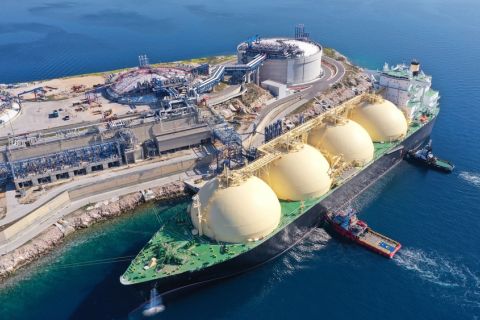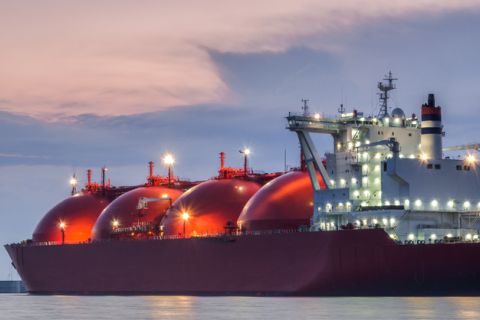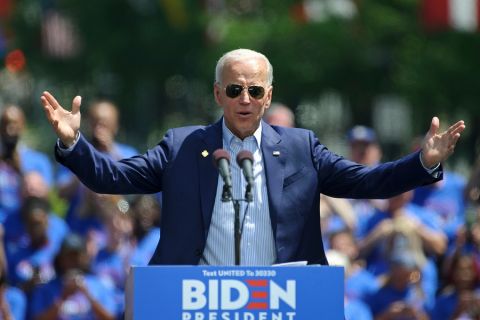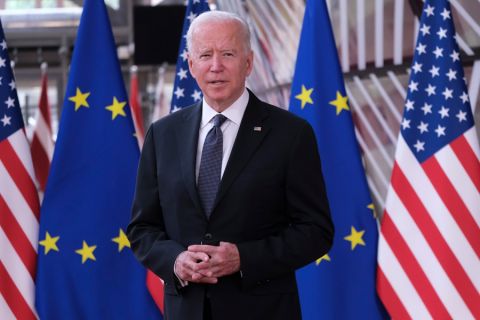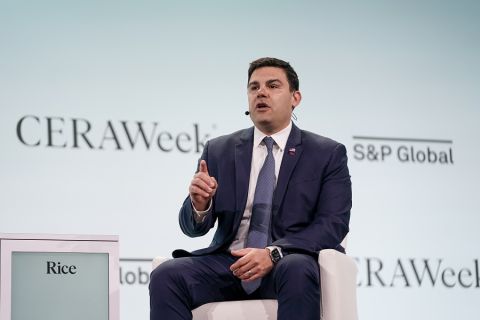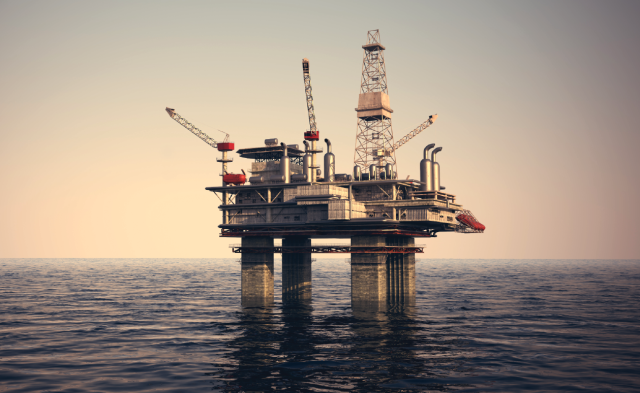
(Source: Dabarti CGI/Shutterstock.com)
[Editor's note: A version of this story appears in the August 2020 edition of E&P. Subscribe to the magazine here.]
API named Lem Smith as its vice president of upstream policy in May. Smith joins API from Squire Patton Boggs where he was a principal and partner. He previously served as director of U.S. government and regulatory affairs with Encana Oil and Gas, now Ovintiv. Prior to Encana, Smith served as government relations manager at Anadarko Petroleum Corp. and director of government relations for Kerr-McGee Corp.
He began his career on Capitol Hill working with U.S. Senate Majority Leader Trent Lott before moving to the House of Representatives where he worked for U.S. Reps. Roger Wicker and Charlie Norwood.
Smith recently provided E&P an exclusive interview in which he discussed his efforts at API and the association’s role amid the current energy climate.
E&P: What are some of the goals you have set out to achieve in the short term in your new position with API?
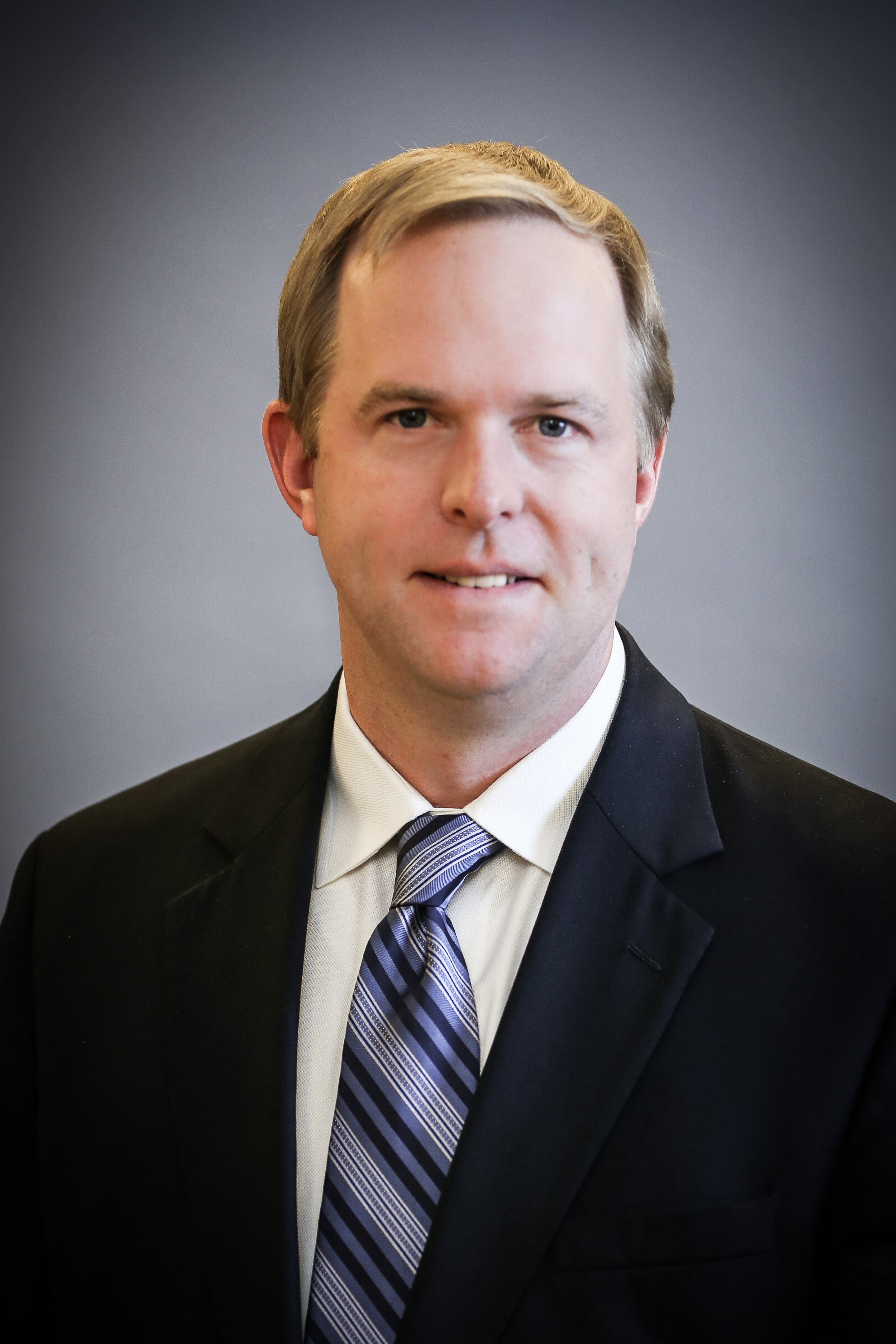
Smith: My goals are those of our members, and API to a larger extent. From a public policy perspective, the issues that our members have identified for us that have been priority issues in many cases have been party issues for two, three, five, 10 years. So we continue to work to advance those interests.
More recently, I think we have been more engaged in trying to beat back short-term proposals that can conflict with our long-stated core key principals, such as free market and free trade. I think what you’re seeing [is] the dislocations earlier this year and the oil markets where we had the economic shutdown to protect workers and U.S. residents, [but] demand fell off the cliff. So as states and regions and countries reopen gradually, I think we have been able to demonstrate that our industry is a critical component to getting America’s economy restarted and back ramping up so we can continue to provide opportunities for American families by ensuring that we have a stable, secure and affordable supply of energy.
I would say that the last three months have been unprecedented. In the case of API, we’ve stayed true to our core principals. There can be no short-term fixes for a lot of it, and we haven’t asked for any industry-specific relief. We haven’t asked for a bailout. We’re a big believer in allowing markets to work, and we’ve stayed true to those core principals.
E&P: What are some key objectives of API that fall under your purview?
Smith: We have some long-held priorities. To name one that is prioritized on Capitol Hill on both sides of the aisle is the National Environmental Policy Act [NEPA] reform. It was a really good law with really good intentions 50 years ago, but it’s API’s position that it’s in need of some constructive reform in order to get back to what we would characterize as its intended use. The projected average of projects under NEPA review averages about six years, and the average cost is almost $4.5 million associated with that review. We’re talking about bridges, roads, energy projects and renewable energy projects. I think NEPA in its current form makes efficient development and delivery of those projects difficult to impossible. The public process that is proposed by CEQ [Council on Environmental Quality] remains robust. Of course, we’re all committed to protecting the environment. But this notion that infrastructure projects and environmental protection are mutually exclusive, that’s not a view we share.
E&P: How have the efforts of API changed during the environment we are currently in, amid a global pandemic, demand destruction and so many companies struggling?
Smith: The old adage is sometimes you’re building an airplane while you’re trying to fly it. I think that applies here. It’s been a challenge, not just for our association and our membership, but in many business segments of the country. API is no different.
We’ve got some incredibly motivated and incredibly talented people; we have a great leadership team that [API CEO] Mike Sommers has put together, and we’ve got a lot of people who are motivated every day. We’ve seen the dislocation in the oil markets that we’ve never seen before, and quite frankly, it’s my observation that was a motivating factor for people to just roll up their sleeves.
There were some critical, nonessential compliance issues where we were concerned about worker safety for offshore that involved the regulatory bodies that we work. API was able to play a role in getting some nonessential compliance relief. Those were things we can do to help foster and offer ideas for relief in the short term that don’t impact safety or reduce environmental protection, but it’s something that is very critical given those first three or four or five weeks where we shut down the economy to protect the safety and welfare of U.S. residents.
At some level, we’ve had to continue to produce energy to sustain and grow the economy during this downturn, and API played a critical role as an intermediary to help those conversations and be efficient and involved in some helpful and effective tools here in the short term.
E&P: How can API serve as an asset to the industry during these times?
SMITH: We have folks who have been with API in some cases 20 years, 30 years. The experience…I think about the offshore, for example, during Hurricane Katrina, Hurricane Rita or Hurricane Sandy, and you think about some of the critical infrastructure needs that we have—whether it’s for petroleum product demand, servicing electric utility fuel sources to keep the lights on. We are oftentimes in the position where we can dedicate critical resources to keep the lights [or] in the case of Hurricane Katrina help fueling stations down in the Gulf Coast to get critical supplies and emergency personnel to people in need.
API has often been in a position to help expedite and facilitate some of those emergency endeavors that are so critical to help people.
E&P: Why was this position something that interested you?
Smith: I worked on Capitol Hill, I was a finance major and just really enjoyed policy formulation and development. I worked in the Senate. I worked in the House for two members, first on Appropriations, then on the Energy and Commerce Committee working for Charlie Norwood, who was very involved in the precursor energy bills to 2005. Nothing ever happens quickly in Washington. In the case of the final Energy Policy Act of 2005, those efforts really started in about 2001.
And my first engagement with API was in 2003. I found them to be a great source of real data and science, and later joined the industry working for Kerr-McGee, and we were members of API. I worked for Anadarko, which acquired us at Kerr-McGee and [later] for Encana for almost 10 years, leading and developing their government relations and regulatory affairs group.
I had just always been impressed with the depth of talent, the competence of the folks at API and the reach, education and resources that they can provide folks. When this opportunity opened up, it just seemed like a
natural fit. It’s a great industry that is doing great things for this country.
Recommended Reading
The Problem with the Pause: US LNG Trade Gets Political
2024-02-13 - Industry leaders worry that the DOE’s suspension of approvals for LNG projects will persuade global customers to seek other suppliers, wreaking havoc on energy security.
Biden Totters the US LNG Line Between Environment, Energy Security
2024-01-30 - Recent moves by U.S. President Joe Biden targeting the country’s LNG industry, which has a number of projects in the works, are an attempt to satisfy environmentalists ahead of the next upcoming presidential election.
Pitts: Producers Ponder Ramifications of Biden’s LNG Strategy
2024-03-13 - While existing offtake agreements have been spared by the Biden administration's LNG permitting pause, the ramifications fall on supplying the Asian market post-2030, many analysts argue.
Belcher: Election Year LNG ‘Pause’ Will Have Huge Negative Impacts
2024-03-01 - The Biden administration’s decision to pause permitting of LNG projects has damaged the U.S.’ reputation in ways impossible to calculate.
EQT’s Toby Rice: US NatGas is a Global ‘Decarbonizing Force’
2024-03-21 - The shale revolution has unlocked an amazing resource but it is far from reaching full potential as a lot more opportunities exist, EQT Corp. President and CEO Toby Rice said in a plenary session during CERAWeek by S&P Global.

